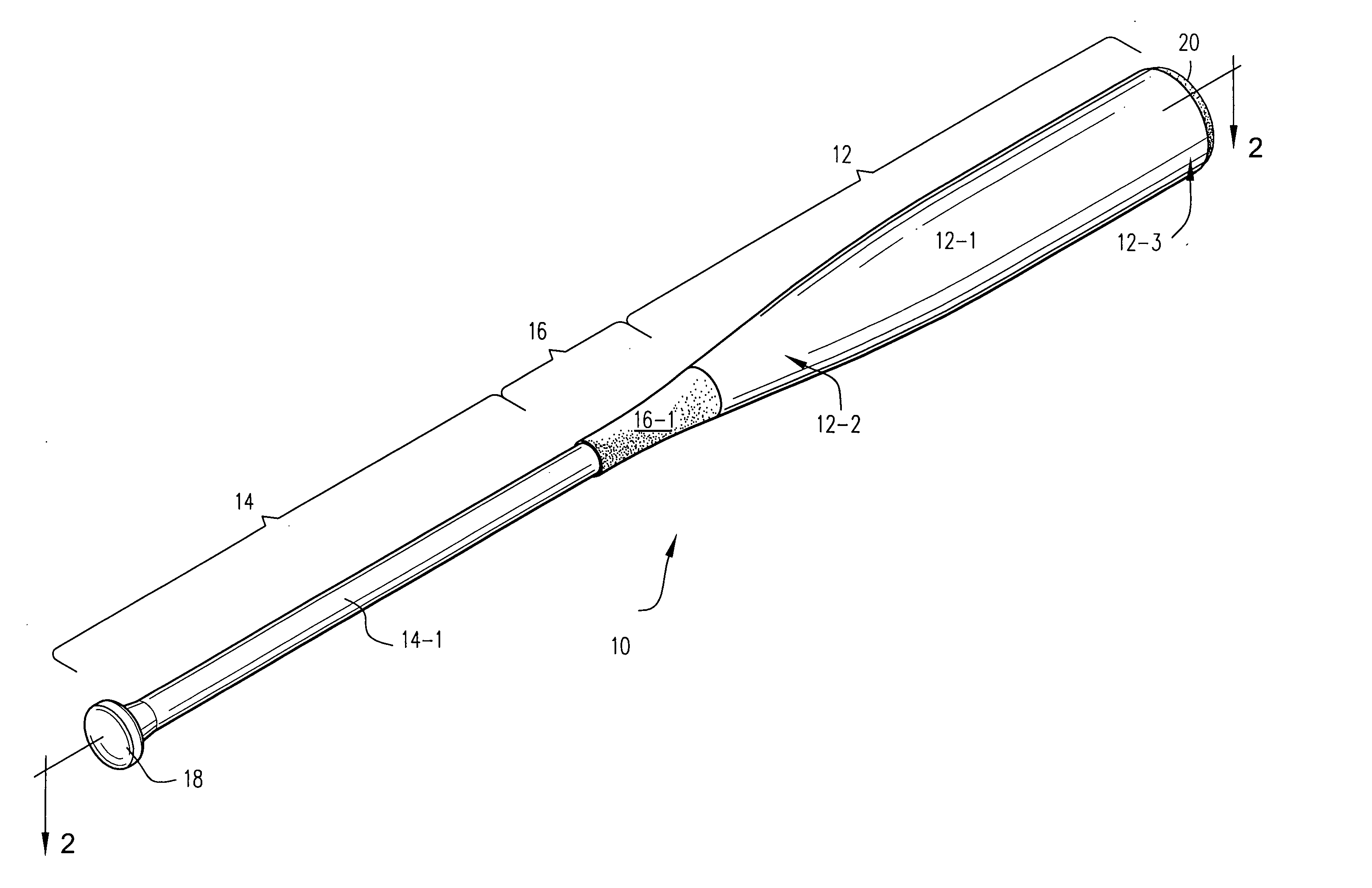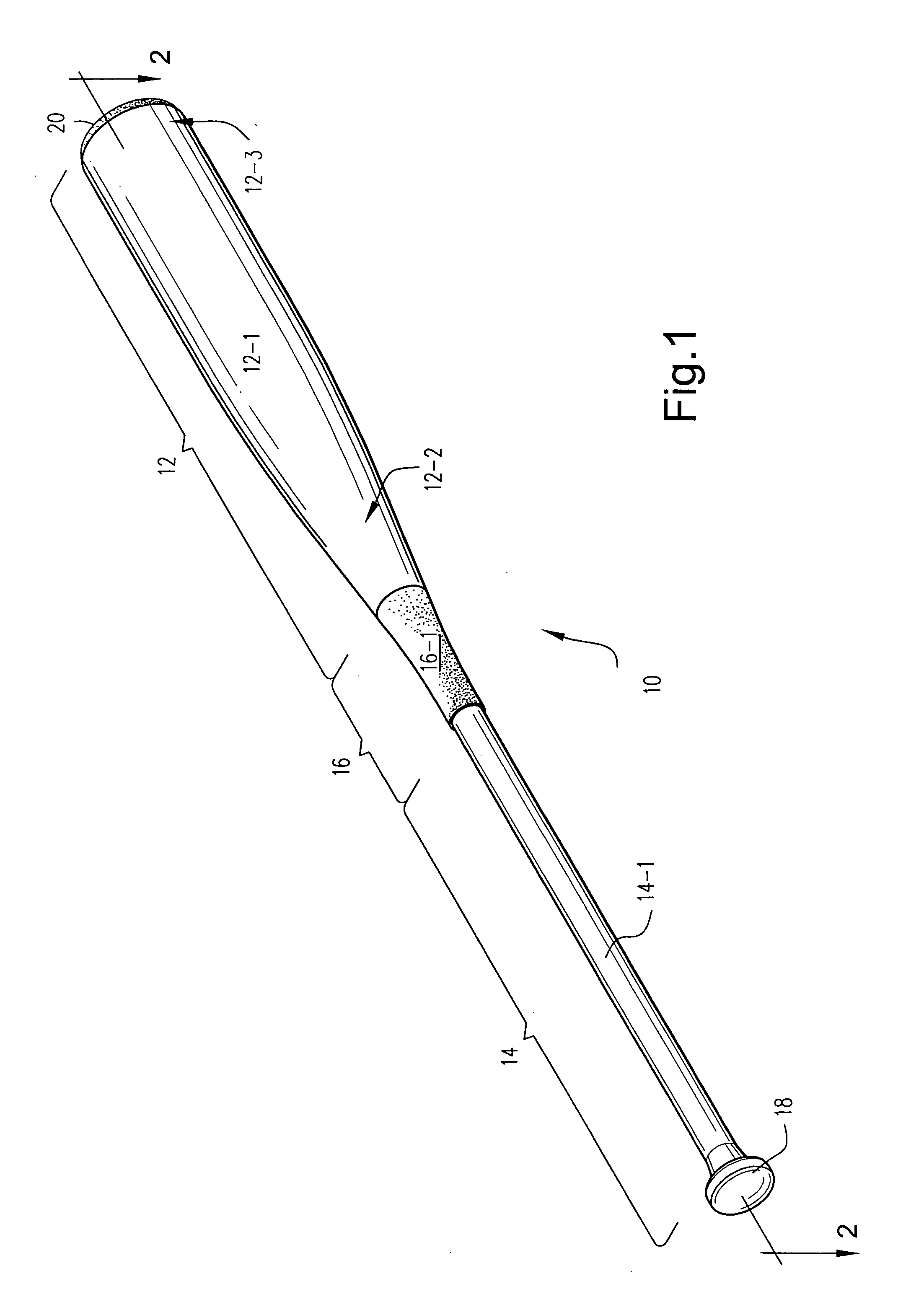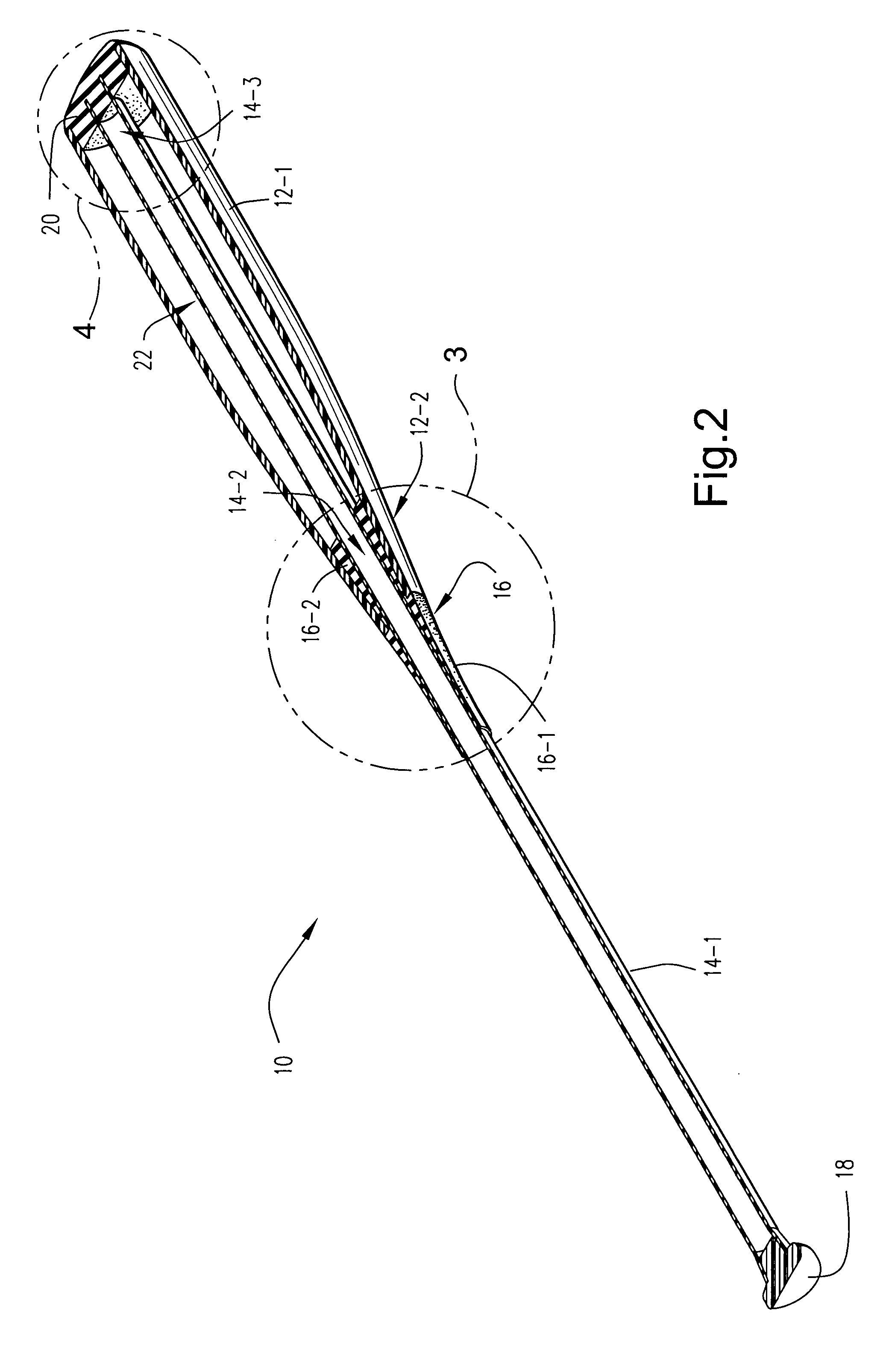Ball bats and methods of making same
a bat and bat body technology, applied in the field of ball bats, can solve the problems of not meeting with complete success, not meeting with commercial success, and persistent significant denting of the barrel, so as to increase the batted distance the ball travels, increase the batted strength, and increase the speed of the ball
- Summary
- Abstract
- Description
- Claims
- Application Information
AI Technical Summary
Benefits of technology
Problems solved by technology
Method used
Image
Examples
Embodiment Construction
[0024] An exemplary embodiment of a ball bat 10 in accordance with the present invention is depicted in accompanying FIGS. 1 and 2. As shown therein, the bat 10 generally includes a barrel section 12 which includes a cylindrical hollow barrel member 12-1 having a tapered proximal end 12-2 and an open distal end 12-3. A handle section 14 which includes a smaller-diameter tubular handle member 14-1 extends proximally of the barrel section 12. An intermediate region 14-2 (see FIG. 2) of the handle member 14-1 is structurally joined to the proximal end 12-2 of the barrel member 12-1 by means of a proximally located elastomeric connector 16. A proximal region 16-1 of the connector 16 surrounding the intermediate region 14-2 (see FIG. 2) of the handle member 14-1 provides a visibly smooth tapered transition between the larger-diameter barrel member 12-1 and the smaller-diameter handle member 14-1. The visible portion of the handle member 14-1 which proximally extends from the connector 16...
PUM
 Login to View More
Login to View More Abstract
Description
Claims
Application Information
 Login to View More
Login to View More - R&D
- Intellectual Property
- Life Sciences
- Materials
- Tech Scout
- Unparalleled Data Quality
- Higher Quality Content
- 60% Fewer Hallucinations
Browse by: Latest US Patents, China's latest patents, Technical Efficacy Thesaurus, Application Domain, Technology Topic, Popular Technical Reports.
© 2025 PatSnap. All rights reserved.Legal|Privacy policy|Modern Slavery Act Transparency Statement|Sitemap|About US| Contact US: help@patsnap.com



